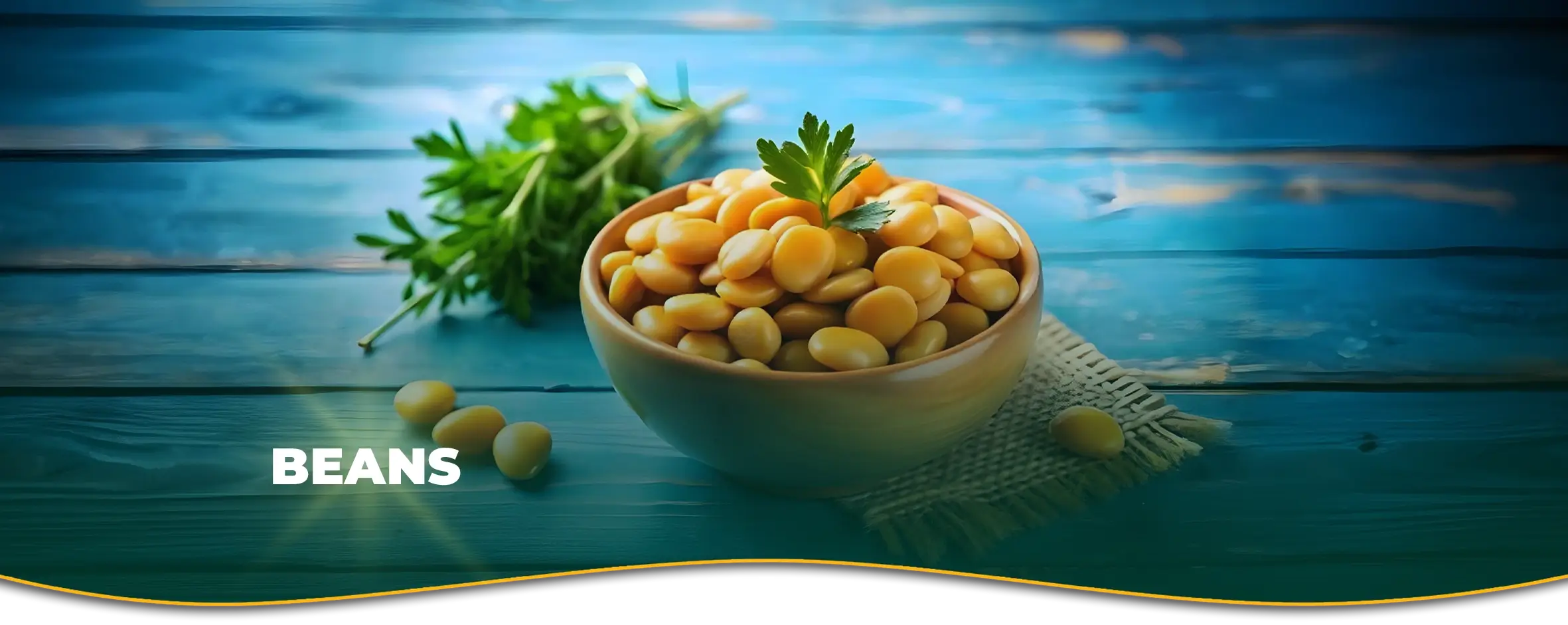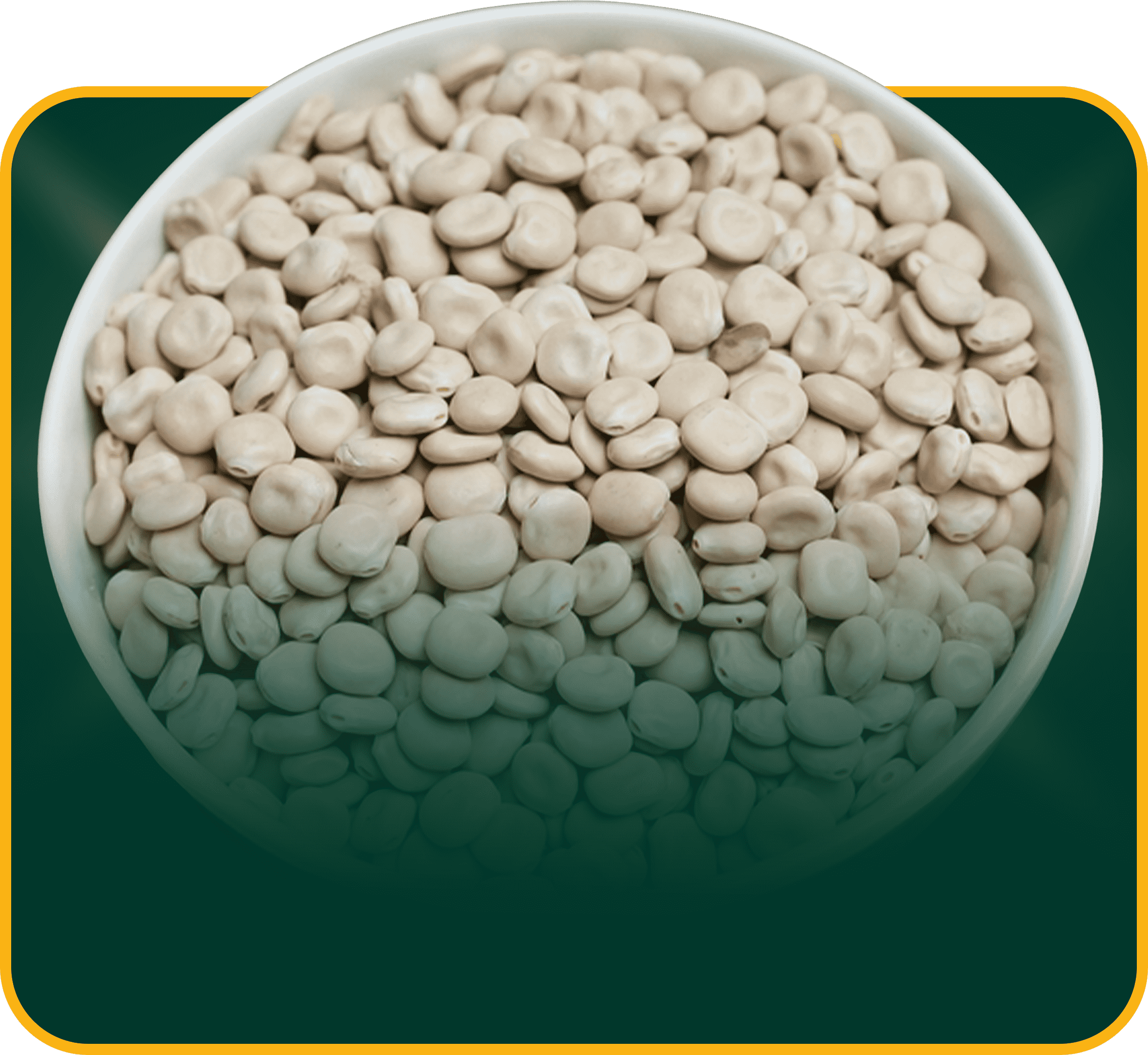
Beans
Egyptian beans, a key component of the country’s culinary heritage, include varieties such as fava beans (broad beans) and chickpeas. These legumes are celebrated for their robust flavors and versatility in traditional dishes. Fava beans have a slightly nutty taste and creamy texture, commonly used in dishes like falafel and foul medames. Chickpeas, known for their mild, nutty flavor, are integral to dishes such as hummus and various stews. Both types of beans are rich in essential nutrients and form a significant part of the Egyptian diet.

Egyptian beans are typically planted in the cooler months, with fava beans usually sown from October to December and chickpeas from November to February. They thrive in well-drained soil and require moderate temperatures for optimal growth. Fava beans are generally harvested in late spring to early summer, around 5 to 6 months after planting, while chickpeas are typically harvested in late summer to early autumn, approximately 4 to 5 months after planting. Harvesting involves removing the beans from the pods once they have matured and dried on the plant, ensuring they are ready for consumption or storage.
Consuming Egyptian beans can have several positive effects on health. The high protein content supports muscle growth and repair, while the dietary fiber aids in digestion and promotes a healthy gut. The vitamins and minerals found in these beans play roles in energy production, immune function, and cardiovascular health. Folate is essential for cell division and can aid in preventing birth defects, whereas iron is vital for producing healthy red blood cells and preventing anemia. Regular consumption of these beans can contribute to a balanced diet and overall health.
Egyptian beans are highly nutritious, offering a rich source of plant-based protein, dietary fiber, vitamins, and minerals. Fava beans and chickpeas are both excellent sources of protein, making them valuable for vegetarian and vegan diets. They are also high in dietary fiber, which supports healthy digestion, helps regulate blood sugar levels, and lowers cholesterol. Additionally, these beans provide essential vitamins like B vitamins (including folate) and minerals such as iron, potassium, and magnesium, contributing to overall health and well-being.
